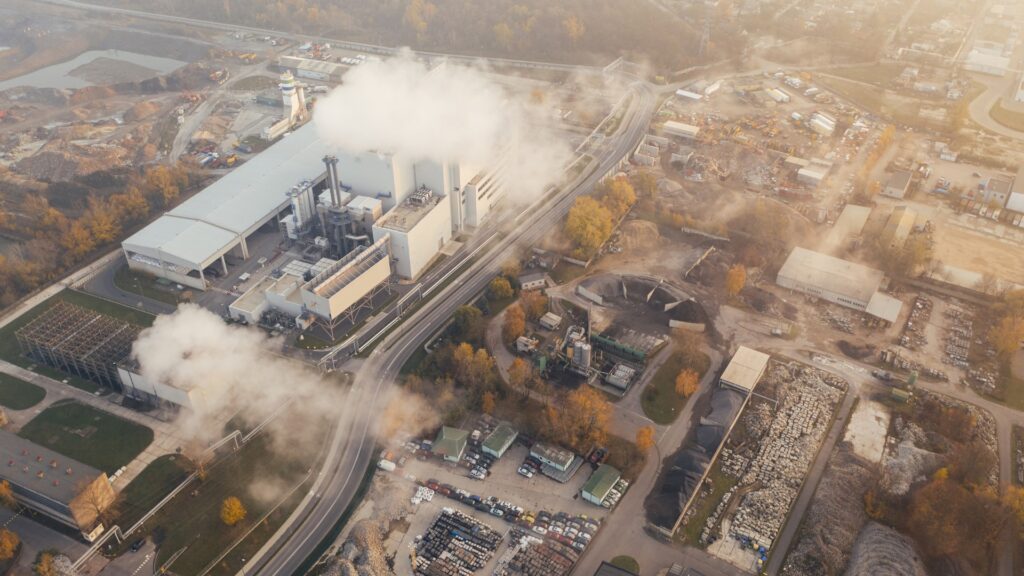As countries around the world grapple with the urgent challenge of climate change, the UAE is exploring the possibility of implementing a carbon tax. This tax would aim to reduce greenhouse gas emissions by placing a price on carbon emissions, incentivizing businesses and individuals to adopt cleaner technologies and practices.
Potential Benefits of a Carbon Tax in the UAE:
Reduced Carbon Emissions: The primary goal of a carbon tax is to incentivize reductions in greenhouse gas emissions. By placing a financial cost on these emissions, businesses and individuals are encouraged to make greener choices. Enhanced Economic Diversification: A carbon tax can stimulate innovation and investment in clean technologies, supporting the UAE’s ongoing efforts to diversify its economy away from oil and gas.

Improved Public Health: Reducing air pollution, a byproduct of greenhouse gas emissions, can lead to improved public health and well-being.
Increased Government Revenue: The revenue generated from a carbon tax could be reinvested in environmental initiatives, renewable energy development, and social programs.
Challenges and Considerations
Designing a Fair and Effective Tax: The UAE would need to carefully design a carbon tax that is effective in reducing emissions while also being fair and equitable across different sectors and income groups.
Potential Impact on Economic Competitiveness: There are concerns that a carbon tax could make UAE businesses less competitive in the global market. However, other countries implementing carbon taxes are addressing this issue through border tax adjustments.

Public Acceptance: Ensuring public understanding and acceptance of a carbon tax is crucial for its successful implementation. Public awareness campaigns and targeted support for vulnerable groups can help address these concerns.
Current Status and Future Developments
While no concrete decision has been made, the UAE has indicated a strong interest in exploring the possibility of a carbon tax. The Ministry of Climate Change and Environment is currently conducting a feasibility study and gathering feedback from stakeholders.

Potential Timeline:
A timeline for the potential implementation of a carbon tax in the UAE has not yet been announced. However, it is expected that the government will carefully consider the results of the feasibility study and engage in further consultations before making a final decision.
Impact on Businesses and Individuals
Businesses operating in the UAE should closely monitor developments related to a potential carbon tax and begin assessing its potential impact on their operations. They may need to explore strategies to reduce their carbon footprint and adapt their business models to comply with any new regulations.
Individuals can also take steps to reduce their carbon footprint, such as using public transportation, opting for energy-efficient appliances, and minimizing waste. By acting, individuals can contribute to reducing greenhouse gas emissions and support the UAE’s goal of a sustainable future.
Potential Impact on Specific Sectors
Energy Sector: A carbon tax could incentivize investments in renewable energy sources and clean energy technologies, potentially leading to a shift away from fossil fuels. This could have a significant impact on the energy sector, requiring companies to adapt their business models and potentially leading to job displacement in the fossil fuel industry.
Transportation Sector: A carbon tax could encourage the use of public transportation, electric vehicles, and other forms of low-carbon transportation. This could lead to a shift in consumer behavior and potentially impact the transportation sector.
Industrial Sector: Industries with high carbon emissions, such as steel and cement production, could be disproportionately affected by a carbon tax. These industries may need to invest in carbon capture and storage technologies or find ways to reduce their emissions through process improvements.
Potential Economic Opportunities:
Green Technology Development: A carbon tax could stimulate the development and deployment of new green technologies, creating new economic opportunities in the UAE.
Carbon Capture and Storage (CCS): A carbon tax could incentivize investments in CCS technologies, which could help to capture and store carbon emissions from industrial facilities and power plants.
Green Jobs: A carbon tax could create new jobs in the clean energy and sustainability sectors.
Addressing the Challenge of Competitiveness:
Border Tax Adjustments: As mentioned, the UAE could implement border tax adjustments to ensure that its businesses remain competitive in the global market. This would involve imposing tariffs on imported goods from countries that do not have a carbon tax, and providing rebates to exporters.
Competitiveness Incentives: The government could also provide incentives to help businesses reduce their emissions and remain competitive. This could include grants, tax breaks, and other forms of financial support.
Public Engagement and Awareness:
The success of a carbon tax will depend on public understanding and acceptance. The government will need to launch comprehensive public awareness campaigns to educate citizens about the benefits of a carbon tax and how it will affect them.
Engaging with stakeholders, including businesses, civil society organizations, and the public, will be crucial in building consensus and ensuring a fair and effective carbon tax policy.
International Cooperation

The UAE can learn from the experiences of other countries that have successfully implemented carbon taxes, such as Sweden, Norway, and Canada.
International cooperation can help to ensure that carbon pricing mechanisms are effective and avoid the risk of carbon leakage, where businesses relocate to countries with lower carbon prices.
Sources
Ministry of Climate Change and Environment: https://www.moccae.gov.ae/en/home.aspx
Carbon Pricing Leadership Coalition: https://www.carbonpricingleadership.org/
International Monetary Fund: https://www.imf.org/en/Publications/staff-climate-notes/Issues/2022/07/14/Carbon-Taxes-or-Emissions-Trading-Systems-Instrument-Choice-and-Design-519101
Academic Journals and Articles
“The impact of a carbon tax on the UAE economy,” Energy Economics, vol. 72, pp. 23-32, 2023.
“Designing a carbon tax for the UAE: A comparative analysis,” Climate Policy, vol. 23, no. 5, pp. 678-695, 2023.
“Public acceptance of a carbon tax in the UAE: A survey analysis,” Environmental Science & Policy, vol. 142, pp. 10-18, 2023

